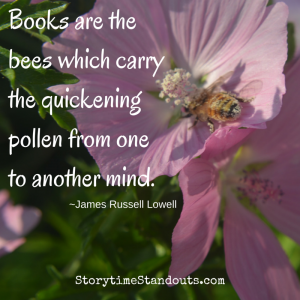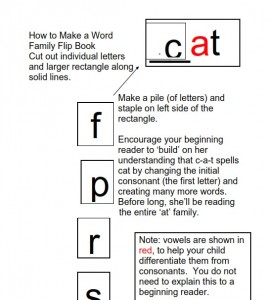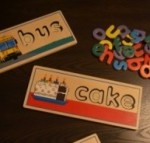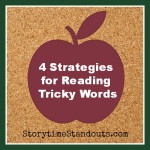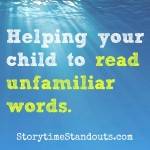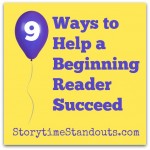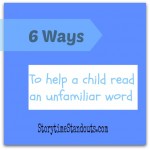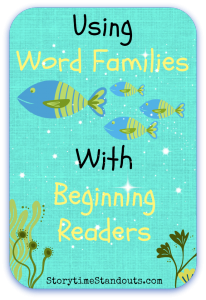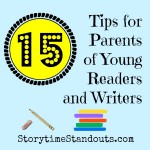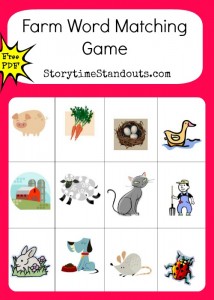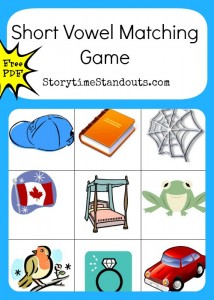Decoding Words
5 Ways Beginning Readers Can Decode a Word
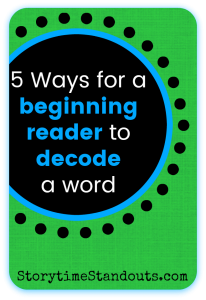
For all beginning readers, word recognition is accomplished through
- Learning/memorizing sight words – also referred to as ‘Instant’, ‘Whole’, ‘Look & Say’, ‘Dolch’, &/or ‘High Frequency’
- Using context clues to decide on an appropriate word
- Applying phonics rules to decode the word
- Structural analysis of the word
- Dictionary use
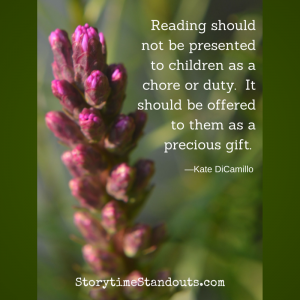

The goal of reading instruction is to give beginning readers the skills they need to decode unfamiliar words and to turn most words into sight words.
A reader with a large sight word vocabulary is able to read more rapidly and more fluently than one whose sight word vocabulary is small. It only makes sense that a beginning reader who is able to ‘instantly’ recognize and understand the words he reads, will be faster and more fluent than a reader who must often pause in order to decode unfamiliar words.
5 Ways Beginning Readers Can Decode a Word#parentingtips #parentchat #learningtoread Share on XOur early childhood learning printables, including our printables for beginning readers and writers are in PDF format, if you don’t already use Adobe Reader, you will need to use it to access the printables.

We have organized our free, printable sight words into groups of ten (per page). Each link leads to sixty sight words
These sight word downloads can be printed and used in various ways with children who are beginning to read. Beginning readers should attempt to learn only a few new sight words at a time – certainly no more than ten. Fewer would be even better.
There are many ways to make learning sight words fun for beginning readers. Playing a memory game or bingo, for example.
I often refer to Sight Words as ‘instant Words’ – we want children to be able to read these words in a ‘flash!’ A confident reader will know them immediately. These are not words to ‘sound out’ – they occur much too often and are not necessarily phonetic (i.e. ‘the’ does not sound anything like /t/+/h/+/e/).
In addition to our free printable Sight Word lists, you will also find Sight Word practice sentences. Some of the practice sentences have blanks where you or your child fills in words or pictures. Early on, I would ask your child how she might like the sentence to end. Then, I would draw a picture or print the word. Usually, your child will be able to remember the word they chose – so, even a very difficult-to-read, multi-syllable word is fine. Your child may ask if she can ‘fill in the blank’ – a great idea!
With all this discussion about Sight Words, we do not want to overlook phonemic awareness and phonics and the role phonics plays in helping beginning readers to decode unfamiliar words and also helping children learn to spell.
Word Families for Kindergarten and Grade One –
In addition to learning sight words, beginning readers should have many opportunities to discover word families. One of the ways to introduce word families is through word family flipbooks,
Here is a link to ten short vowel ‘word family flip books’.
You will find two word families for each vowel: ___an, ___at, ___,ed, ___ell, ___ick, ___ing, ___op, ___ot, ___ug, and ___uck
Once your child discovers that letters can be put together to make words, it can be magical for him to realize that changing just one letter will produce a word with an altogether different meaning. Also, once you know the sound that /an/ makes, you can read seven or eight words by switching the beginning sound. This is a terrific way to bolster your child’s confidence – she didn’t just read one new word, she read eight!
Take note, in these free printable word family flipbooks, the consonants are in black, vowels are in red. This differentiation is frequently done and lays the groundwork for learning about long and short vowels.
For more than twenty free word family printables, please visit our Word Family page
Some of our Favourite Posts About Supporting Beginning Readers
Hover over the picture to read the post title. Click on the picture to read the entire post
Free Printable Farm Word Matching Game
 Short Vowel Word Match Game
Short Vowel Word Match Game
Pictures to match with words.
Printable Short Vowel Word Matching Activity for Beginning Readers
 Farm Animal Word Match
Farm Animal Word Match
Simple farm-theme matching activity for beginning readers.




